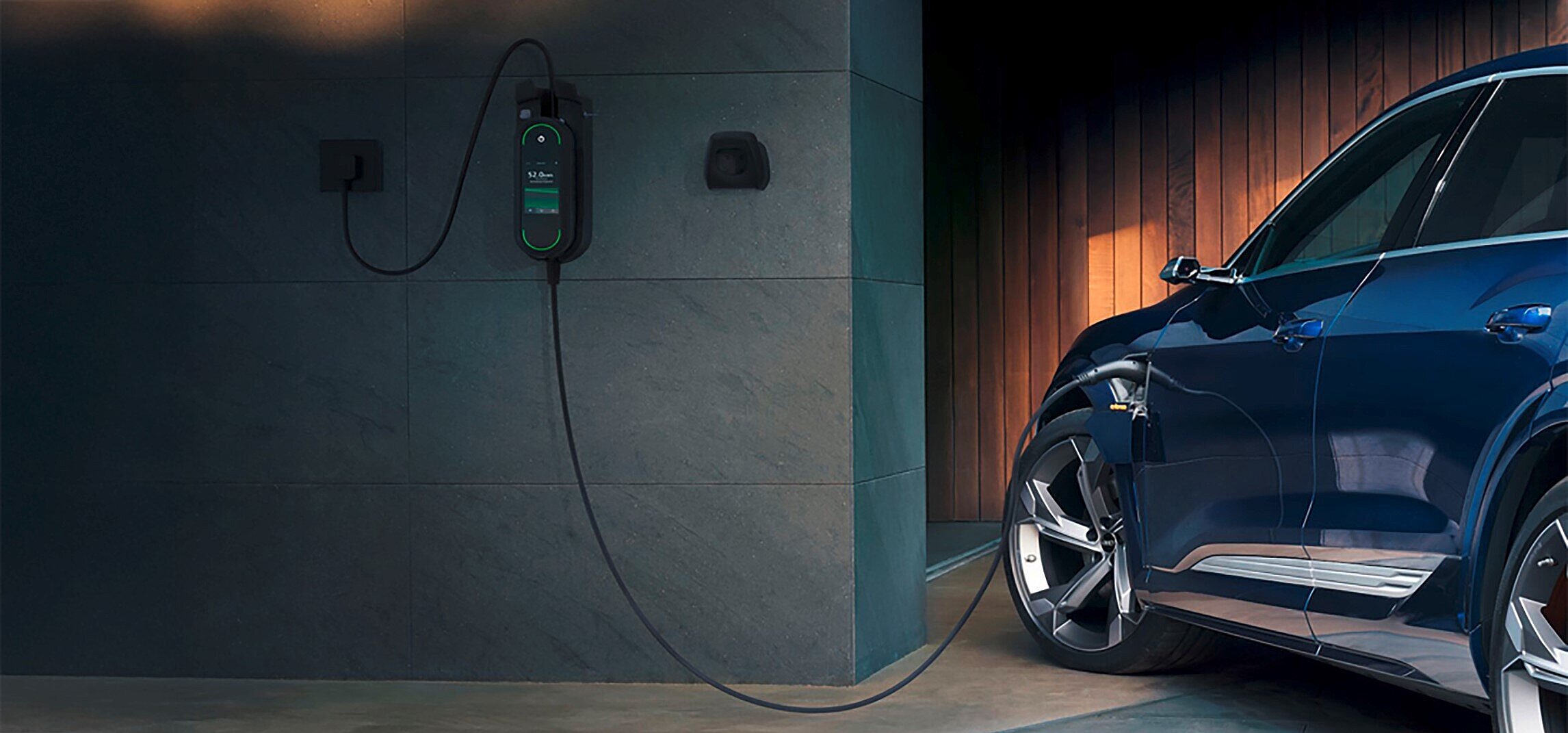
The Baden-Württemberg transmission system operator TransnetBW, the car manufacturer Audi and the consulting firm Intelligent Energy System Services (IE2S) have developed an innovative approach to efficiently utilise surplus electricity from renewable energies. The concept offers cost savings for owners of electric vehicles – without smart meters or dynamic electricity tariffs.
The expansion of renewable energies means that, in sunny weather, the electricity grid is increasingly being ‘flooded’ with solar power. This can lead to negative prices on the electricity exchange or, in the worst case, to the curtailment of generation plants. Electric vehicles could make an important contribution here by absorbing surplus electricity and responding flexibly to price signals. The challenge: Until now, such charging processes have required smart meters and dynamic electricity tariffs. However, according to the Smart Meter Initiative, only two per cent of German households are equipped with a smart meter.
Efficient method for integrating electric vehicles into the electricity market
TransnetBW and its partners have developed an alternative approach as part of the iSLP (intelligent charging in standard load profile) pilot project that does not require these systems. The method uses existing processes and determines the deviations between actual electricity consumption and the previously calculated standard load profile. Based on electricity exchange prices, the charging processes are intelligently controlled and balanced in the local distribution network operator's difference balancing group. Electric vehicles are charged via corresponding control signals – without restricting user comfort.
Successful pilot test with digital and real vehicles
The approach was initially simulated with 880 digital vehicles. The tests show that by shifting charging processes to times when electricity prices are low, charging costs could be reduced by 62 per cent and carbon dioxide emissions by 36 per cent. Extrapolated to the year 2035, this could save around two billion euros and avoid around one million tonnes of carbon dioxide per year in Germany.
In a second phase, the approach was successfully tested with around 20 real vehicles. However, given the low market penetration of smart meters, the great flexibility potential of decentralised consumers cannot currently be sufficiently exploited. With the successful iSLP pilot project, TransnetBW, Audi and IE2S have demonstrated a way to benefit from cheaper charging conditions for electric vehicles even without smart meters and dynamic electricity tariffs.
In principle, the regulatory and legal framework would currently allow distribution network operators to participate in such a system. However, it is also conceivable that transmission network operators could take over central control, although the necessary regulatory framework would first have to be created. This development shows how innovative approaches can advance electromobility while contributing to efficiency and sustainability in the energy sector.
Illustration of TransnetBW's iSLP pilot project (only in German)
